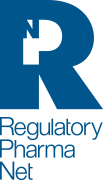Bispecific antibodies (bsAbs) are genetically engineered, recombinant antibodies having two distinct binding domains capable of binding two different antigens or two different epitopes of the same antigen.
Unlike conventional monoclonal antibodies (mAbs), which have both binding sites directed to the same target, bsAbs attach to 2 different antigens simultaneously and this specific feature enables novel and unique mechanisms of actions such as engaging immune cells to tumor cells, delivering payloads to tumors, and blocking signaling important for the tumor.
During the last decade, there has been a significant increase of research dedicated to bsAbs and their application as therapeutic option in the oncology field. A wide spectrum of oncology related bsAbs in clinical development engage immune cells to destroy tumor cells; however, bsAbs can also be designed to block tumor signaling pathways or deliver cytotoxic payloads to tumors.
On April 18, 2019, FDA issued a draft guidance on Bispecific Antibody Development Programs. The draft guidance highlighted the need for a dedicated bsAb development program and discussed general regulatory, quality, nonclinical, clinical, and scientific considerations for bsAbs.
More recently, on May 24, 2021, FDA released an updated finalized guidance on bispecific antibodies. The guidance has been revised from the draft guideline to put more emphasis on the quality, nonclinical and clinical development programs for these drugs; to clarify considerations in assessing immunogenicity; and to clarify clinical assessments comparing a bsAbs and an approved monospecific product.
Regulatory Pharma Net is available to provide support to companies in clinical program development of Bispecific Antibodies. Our team is able to provide the most suitable solutions to optimize clinical development in line with FDA requirements and client’s targeted label indication.




